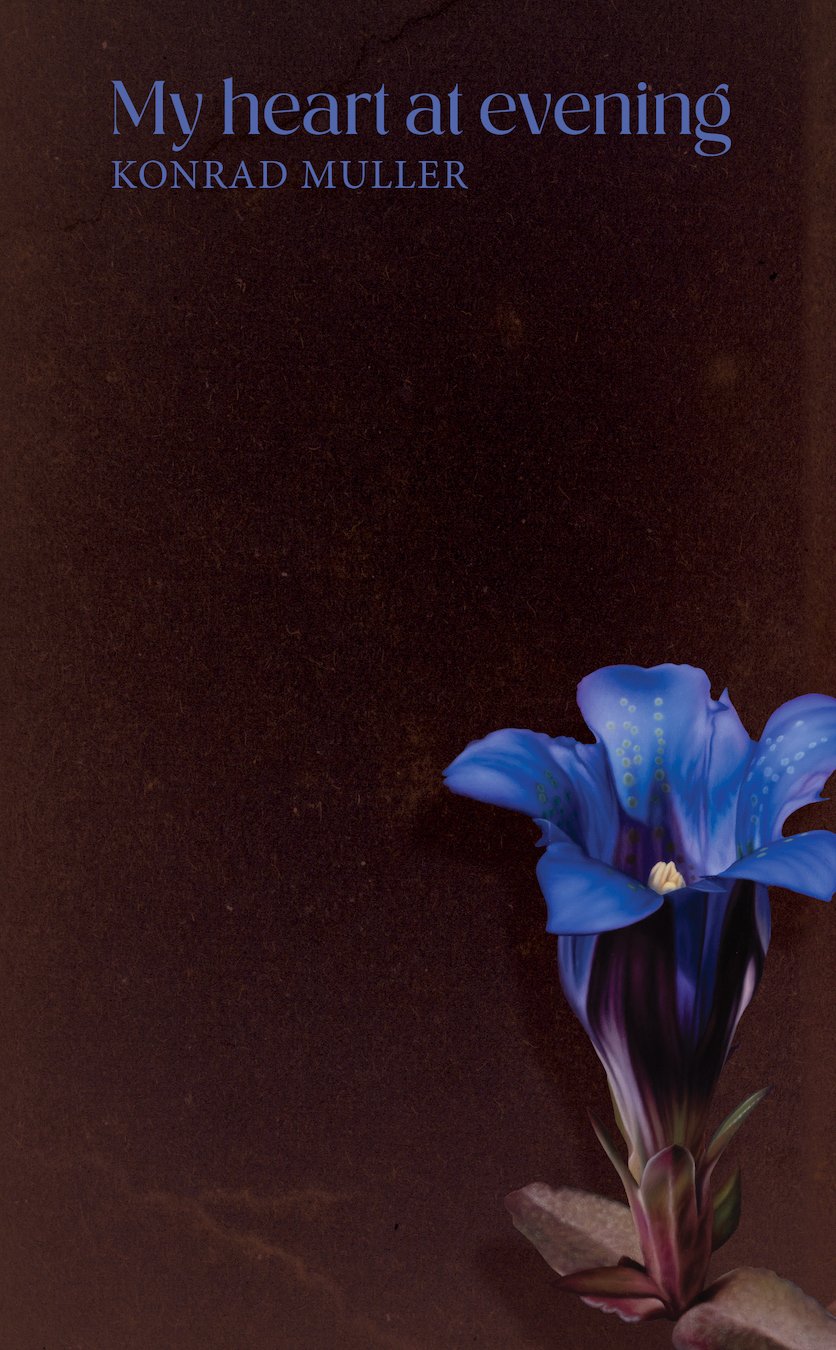 Image 1 of 1
Image 1 of 1


My Heart at Evening by Konrad Muller — Available August 2025
I got up heavily. All the unpleasant goings-on at this outpost. On the day of my arrival, Alexander Morton had said some evil was afoot; I wasn’t sure I believed him then, but slurs, and little lies about a key, and the fiddling with the mail. Funny games, I thought, funny games, and the secret language of objects. It all smelt of maliciousness—petty maliciousness. But I still couldn’t quite see how such maliciousness had driven Henry Hellyer to shoot himself.
1832, Van Diemen’s Land. A troubled, unnamed emissary narrates his journey north from Hobart Town to Circular Head (present-day Stanley) where he has been sent to investigate the circumstances surrounding the suicide of Henry Hellyer—surveyor, amateur botanist, artist, and friend to the wife of the Chief Agent in the north.
There he navigates the horror of a fledgling nation. Staying in the deadman’s room, voices come out of the darkness: lies, deceptions, fabrications, and some truth. While he tries to make sense of all the politics, pettiness, and self-preservation, he is fighting demons of his own in this novel that brings to startling life one of our country’s foundational stories. At once a love letter, a reckoning, and compelling mystery, My Heart at Evening is an irresistible observation of the forces that shaped Tasmania, and Australia more broadly, from power, to mateship, sexuality, and isolation—forces we still recognise today.
A glossy black cockatoo of a book, as black as midnight, menacingly courtly, with mischievous scarlet flashes. Mephistophelian, brilliant. — ROBERT DESSAIX
Above and around the novel’s human complexity are descriptions of nature so vivid that the experience of reading at times becomes more like looking at an oil painting than words on the page. — KATE KRUIMINK
I got up heavily. All the unpleasant goings-on at this outpost. On the day of my arrival, Alexander Morton had said some evil was afoot; I wasn’t sure I believed him then, but slurs, and little lies about a key, and the fiddling with the mail. Funny games, I thought, funny games, and the secret language of objects. It all smelt of maliciousness—petty maliciousness. But I still couldn’t quite see how such maliciousness had driven Henry Hellyer to shoot himself.
1832, Van Diemen’s Land. A troubled, unnamed emissary narrates his journey north from Hobart Town to Circular Head (present-day Stanley) where he has been sent to investigate the circumstances surrounding the suicide of Henry Hellyer—surveyor, amateur botanist, artist, and friend to the wife of the Chief Agent in the north.
There he navigates the horror of a fledgling nation. Staying in the deadman’s room, voices come out of the darkness: lies, deceptions, fabrications, and some truth. While he tries to make sense of all the politics, pettiness, and self-preservation, he is fighting demons of his own in this novel that brings to startling life one of our country’s foundational stories. At once a love letter, a reckoning, and compelling mystery, My Heart at Evening is an irresistible observation of the forces that shaped Tasmania, and Australia more broadly, from power, to mateship, sexuality, and isolation—forces we still recognise today.
A glossy black cockatoo of a book, as black as midnight, menacingly courtly, with mischievous scarlet flashes. Mephistophelian, brilliant. — ROBERT DESSAIX
Above and around the novel’s human complexity are descriptions of nature so vivid that the experience of reading at times becomes more like looking at an oil painting than words on the page. — KATE KRUIMINK